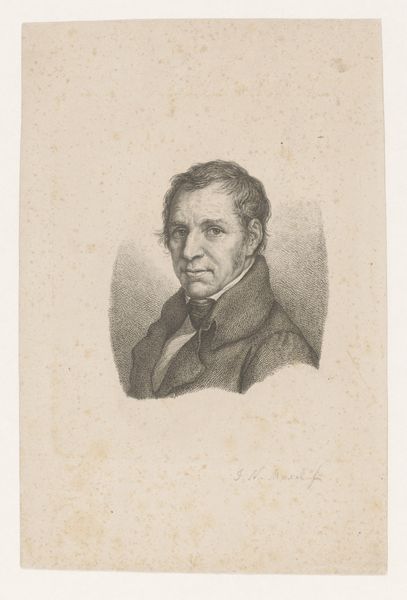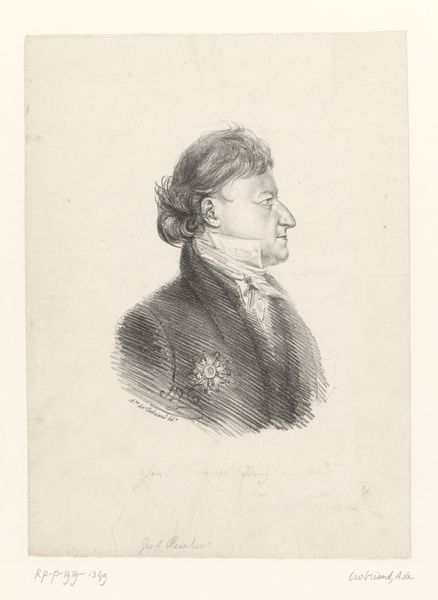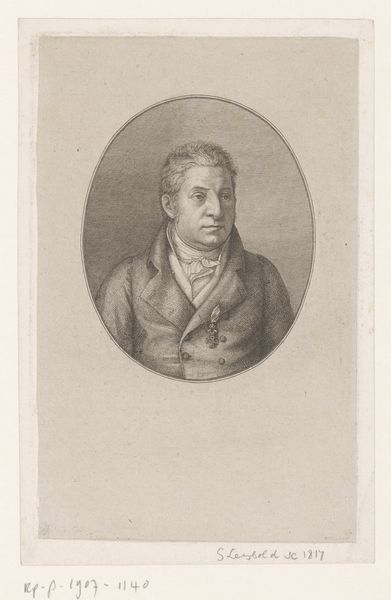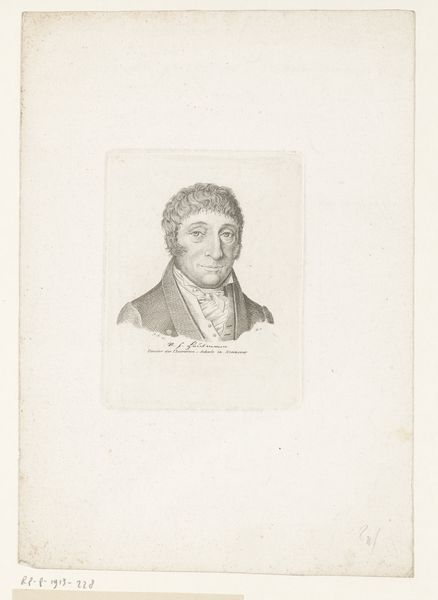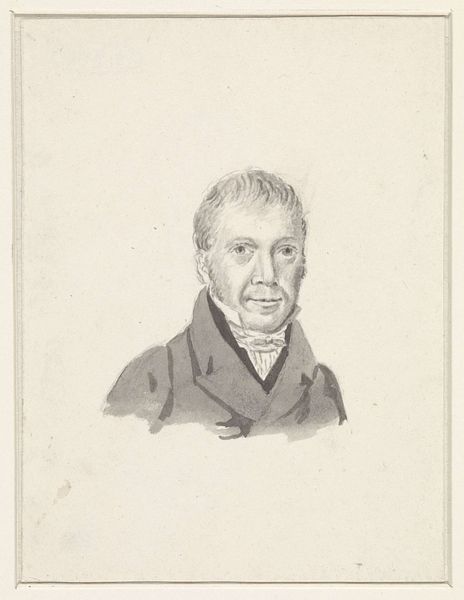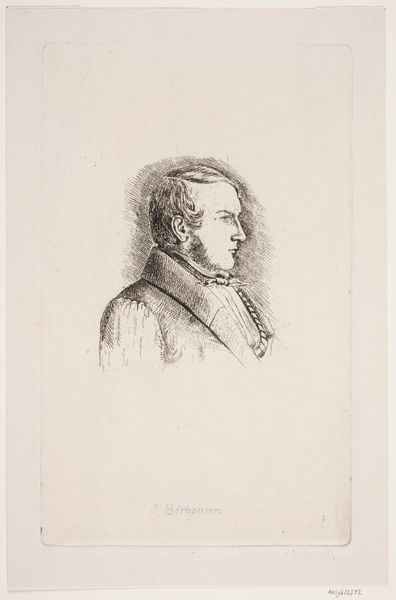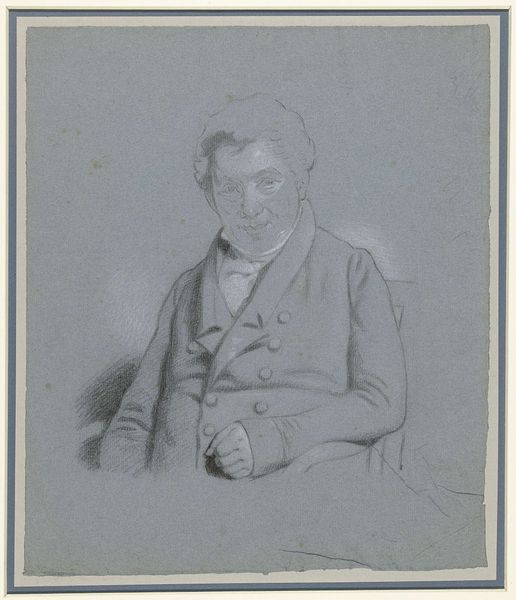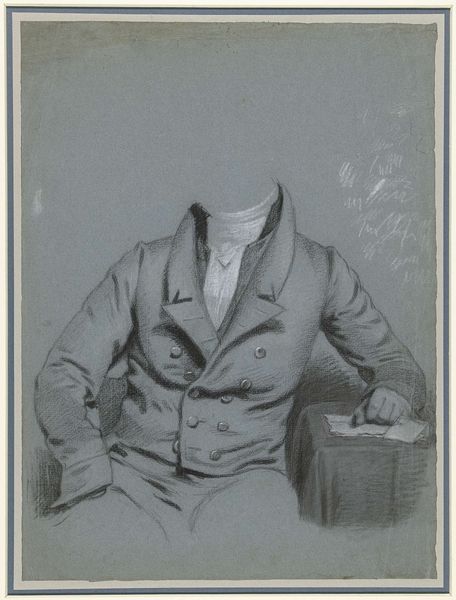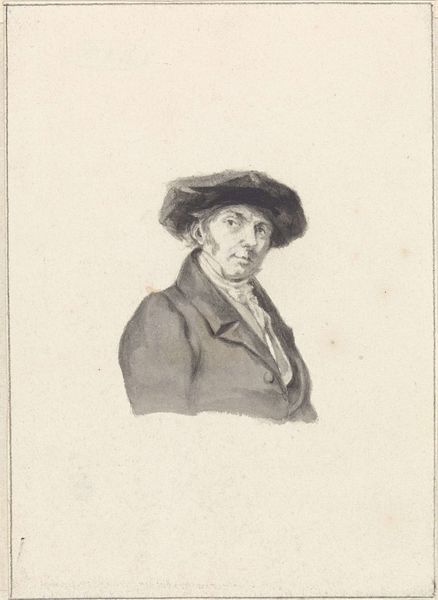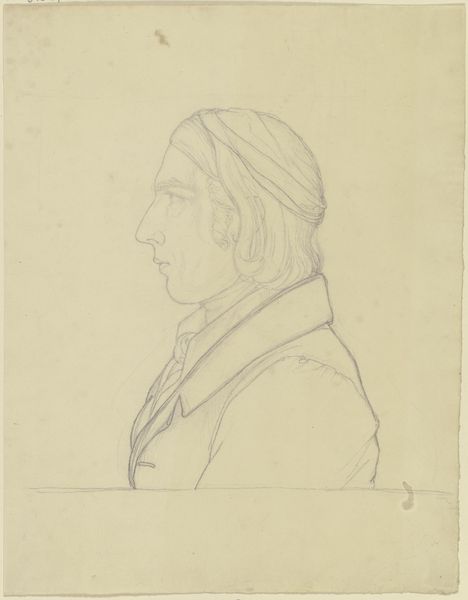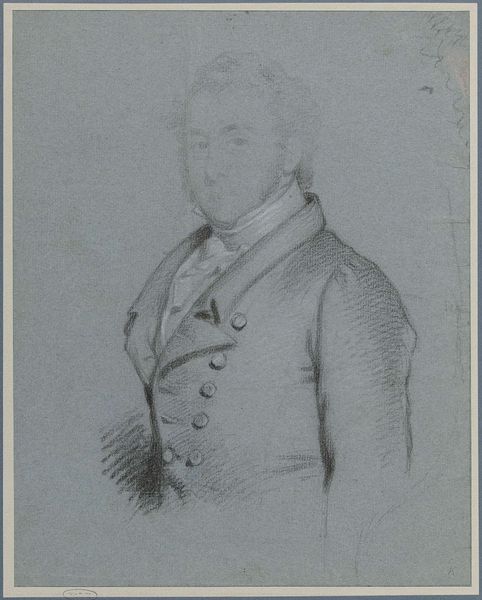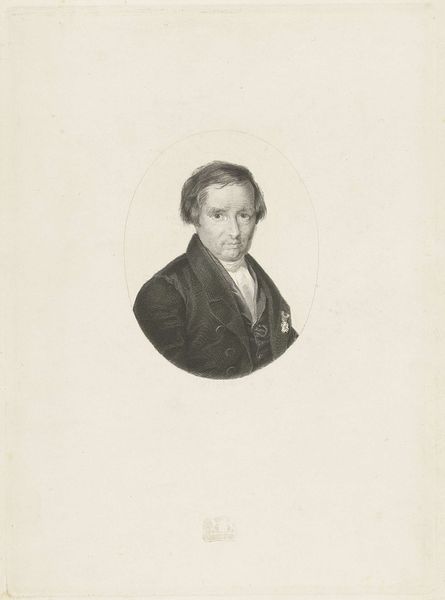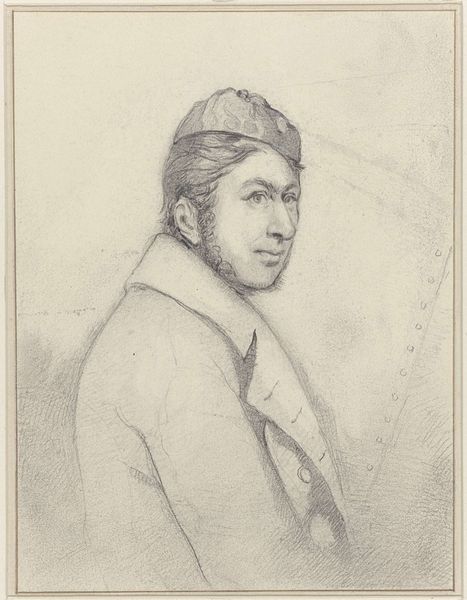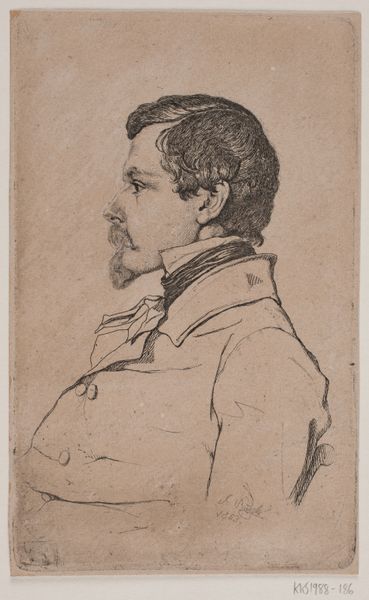
drawing, pencil
#
portrait
#
drawing
#
toned paper
#
facial expression drawing
#
pencil sketch
#
caricature
#
figuration
#
portrait reference
#
pencil drawing
#
romanticism
#
pencil
#
limited contrast and shading
#
portrait drawing
#
portrait art
#
fine art portrait
Dimensions: height 292 mm, width 241 mm
Copyright: Rijks Museum: Open Domain
Editor: This is an intriguing portrait drawing titled "Portret van onbekende heer" by Charles Howard Hodges, dating sometime between 1774 and 1837. It's rendered in pencil on toned paper, currently housed at the Rijksmuseum. I’m struck by the artist’s delicate use of line and shading, but I'm uncertain what significance the asymmetry adds to the piece. How do you interpret the artist's choice of using visible, directional strokes and an unfinished quality for this portrait? Curator: The piece presents an exercise in form. Notice how the directional strokes contribute to a sense of depth and volume, yet simultaneously disrupt the smoothness we might expect from a finished portrait. Consider how Hodges employed pencil in the Romantic tradition—focusing less on absolute likeness and more on capturing the essence or a certain idealized *impression* of the subject. Editor: So, you are suggesting the Romanticism movement places emphasis on individual expression through fragmented details? Curator: Precisely. Think of it as an exploration of structure over absolute replication. The unfinished portions direct our gaze and challenge us to piece together the complete picture in our mind. Editor: Interesting. It’s as if the portrait is an equation, where the observer completes it to give meaning to the piece. Did this technique go beyond merely suggesting an “essence”? Curator: It serves as a signifier of artistic subjectivity. This approach departs from a simple transcription to allow for interplay of both line and observer. Is it an intentional move by Hodges to invite us to partake in that creation, or simply incomplete? That interplay of purpose gives it much more depth. Editor: Thank you! I see how appreciating Hodges’ strategic use of form adds another layer to experiencing this particular style of Romantic portraiture. Curator: Indeed, viewing through a Formalist lens can often give rise to many interpretations.
Comments
No comments
Be the first to comment and join the conversation on the ultimate creative platform.
